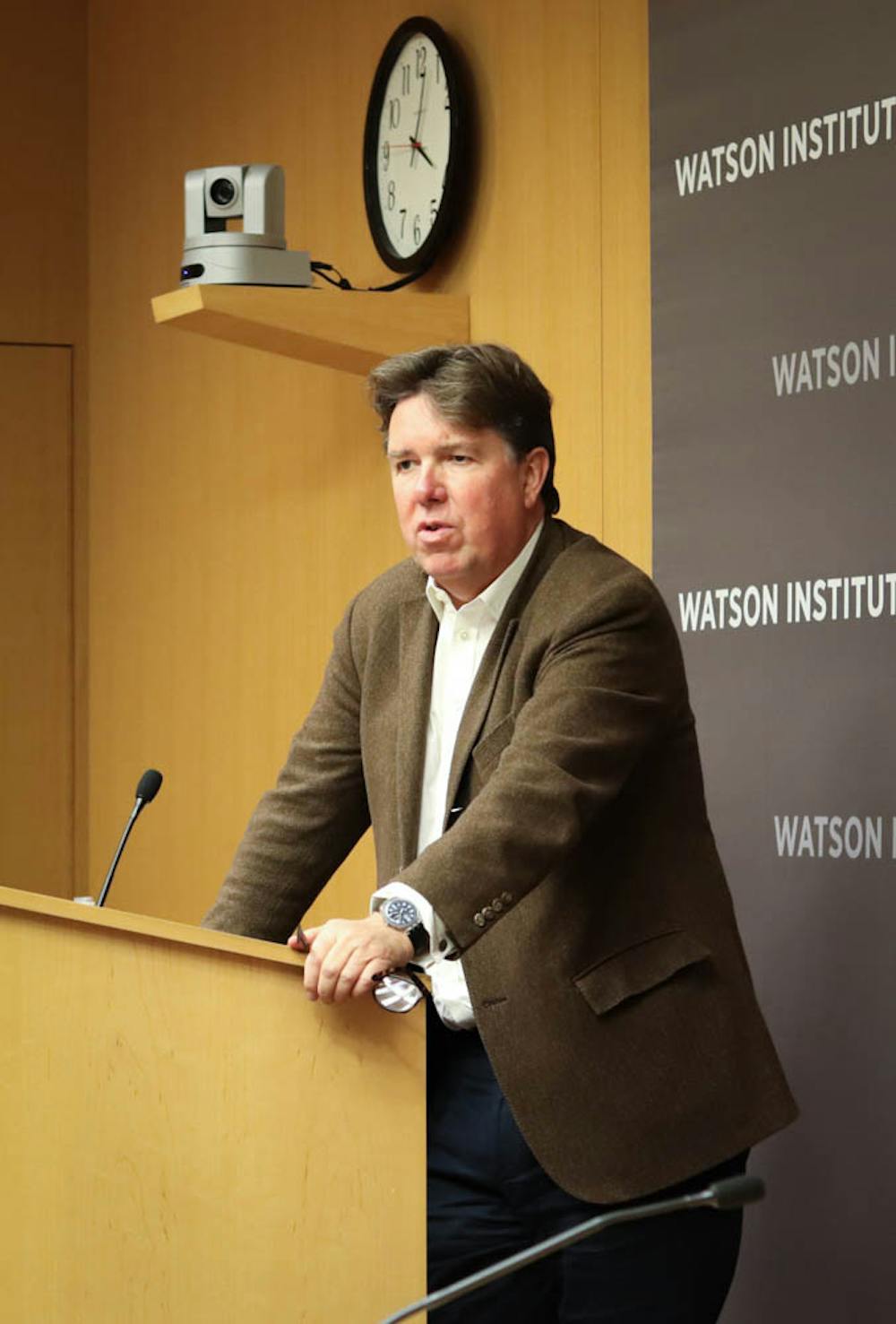Paul Tucker, chair of the Systemic Risk Council and former deputy governor of the Bank of England, discussed his newest book “Unelected Power: The Quest for Legitimacy in Central Banking and the Regulatory State” at a talk hosted by the Rhodes Center for International Economics and Finance Tuesday night. Tucker explored the impact of unelected officials such as central bankers on democracy. “British citizens couldn’t vote me out. In this country, you can’t vote out Jerome Powell,” the current chairman of the Federal Reserve, Tucker said.
Drawing on topics from Tucker’s book, panelists who joined Tucker onstage discussed unelected powers within the context of constitutional values and economic theory.
As nations begin to rely more on the decisions of unelected officials, “we’re taking risks of alienating people from our system of government,” Tucker said.
The legitimacy of these political structures is the first political question that arises because their directors are not held accountable by direct elections, Tucker said. The constitutional principles that frame many Western nations do not provide any guidance about the allocation of power to unelected entities, he added. Political theorists such as John Locke and James Madison did not make any mention of the administrative state.
Though central bankers were not initially mentioned by these theorists, they are given significant economic and political powers, such as the ability to print currency and control inflation. Central bankers are also tasked with regulating the banking sector through enforceable regulations and monetary policy.
“My main takeaway is how many difficult decisions central bankers have to make,” said Jan Stockbruegger GS, who attended the talk.
Tucker’s book tackles whether unelected institutional structures can be democratic and legitimate.
This democratic “puzzle” is similar to the counter-majoritarian difficulty — the concept that a small majority of unelected individuals on the Supreme Court can strike down laws passed by a Congress that was elected by millions, said panelist and Professor of Political Science Corey Brettschneider. Both central banks and the Supreme Court have a trustee relationship with the people in that they are charged with acting for the people by checking executive power.
Brettschneider referred to President Trump’s “threat gestures” over the past weeks directed at the Federal Reserve as an example of the necessity of this check. Brettschneider suggested that Trump’s own real estate interests may play a role in his dispproval of raising interest rates, but the President cannot fire the chairman of the Federal Reserve without cause.
If these checks did not exist and politicians were instead responsible for interest rates, they could set them low to cause an economic boom prior to elections, Tucker said.
Central bankers are also charged with protecting the value of currency. Politicians would have the incentive to keep the rate on debt low, since most debt is government-issued, said panelist Gauti Eggertsson, professor of economics.
To maintain the legitimacy of unchecked powers, however, politicians must work to keep unelected officials in sync with the general public, Tucker added.





